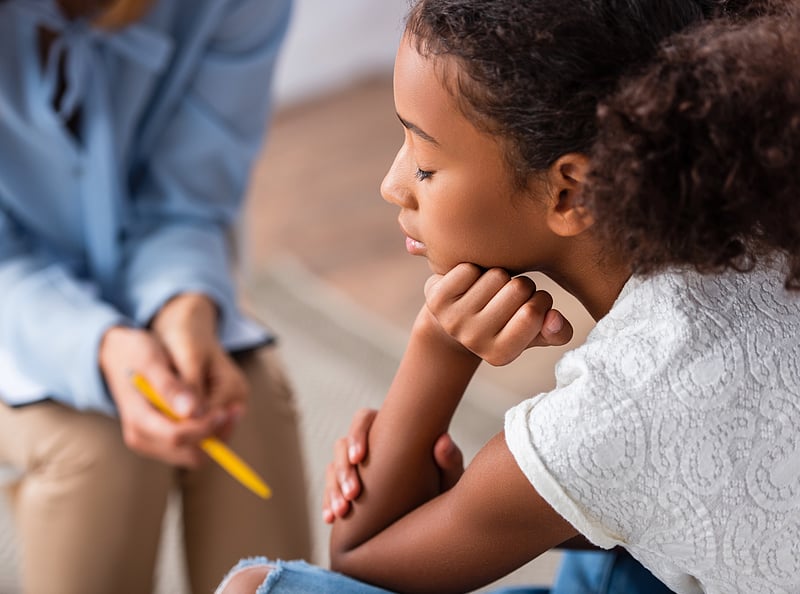Get Healthy!

- Cara Murez
- Posted June 5, 2023
Many Kids Wait Too Long for Mental Health Care After Gun Injury
U.S. gun deaths and injuries in children have risen at astronomical rates. Yet, among kids on Medicaid, only about two of every five children who get shot receive mental health care within six months of these traumatic incidents, researchers say.
The need is great, given that more than 11,250 U.S. kids experienced nonfatal firearm injuries in 2020.
"There are many things that can happen after a traumatic accident like this from a mental health perspective. One, there are very frequently people who experience chronic pain associated with it, and chronic pain has a high rate of developing substance use disorders and addiction,"said study co-author Dr. Eric Fleegler.
These patients may have post-traumatic stress disorder (PTSD) and could be dealing with depression. Without proper therapy and medication, this may lead to worse school performance, trouble retaining work, issues in relationships, suicidal ideation and premature death, added Fleegler, a pediatric emergency medicine physician at Boston Children's Hospital. He's also an associate professor of pediatrics and emergency medicine at Harvard Medical School.
Those most likely to receive care already had sought mental health care or they received a mental health diagnosis at the time of the firearm injury, the study found. They were also more likely to be white.
"There should be nothing different between somebody who is Black versus somebody white versus somebody who's Hispanic in terms of whether they get access to care. And yet we see that there's about a 25% increased rate of getting access for those kids who are white compared to Black. That's an important finding,"said Fleegler.
For this study, the researchers analyzed Medicaid data on more than 2,600 kids, aged 5 to 17, who suffered a nonfatal firearm injury between 2010 and 2018. The investigators found just 37% had received mental health services within six months after the injury. Forty percent of that group had no prior use of mental health services, meaning the majority who got help already had used services or got a mental health diagnosis at the time of treatment.
This group of researchers -- pediatric emergency physicians and trauma surgeons, a psychiatrist, statisticians and others -- has worked for many years, separately and together, to gain insight into the issues surrounding firearm injuries in the United States.
"Firearm injuries have just skyrocketed in the last decade,"Fleegler said. "And the types of people who are being affected, who are poor and minoritized youth in particular, is quite striking."
The group realized through some of its work that firearm injuries can lead to severe mental health problems, Fleegler said.
Trauma can result, regardless of the cause, which could range from assault to unintentional injury to self-harm.
Although this study can't explain why victims' mental health is not being addressed, reasons could include a shortage of mental health care providers, Fleegler said.
In addition, many providers choose not to take insurance. That means people can access that care only if they can pay for it out of pocket.
Uneven distribution is also a concern, with more providers located in urban and suburban areas, and thus not enough service in rural communities.
The American College of Surgeons' 2022 guidelines for pediatric trauma centers require mental health screening and referral for high-risk kids after a traumatic incident. Also, some emergency departments offer the Child and Family Traumatic Stress Intervention for children 7 and older, which is designed to prevent the development of PTSD, said Robin Gurwitch, a clinical psychologist and professor at Duke University Medical Center in Durham, N.C.
Most children will be OK after even horrific events, she said.
"But just because most will be OK does not mean that we don't do something. It is essential that youth who have experienced traumatic events, such as gunshot wounds, have supportive, caring adults around them to talk with and to offer support,"said Gurwitch, who was not involved in this study.
"Fortunately, the trauma field has made significant advances over the past decades. Getting mental health services within the first few months after a trauma can begin the healing and recovery, reducing the risk of long-term problems," she noted.
"If reactions are interfering with daily functioning, then getting treatment quickly is important,"Gurwitch added. "For many, with support, these reactions can begin to diminish within the first month."
The report was published online June 5 in Pediatrics.
More information
Pew Research Center has more on children and guns.
SOURCES: Eric Fleegler, MD, MPH, associate physician, pediatrics, division of emergency medicine, Boston Children's Hospital, and associate professor, pediatrics and emergency medicine, Harvard Medical School, Boston; Robin Gurwitch, PhD, clinical psychologist and professor, Duke University Medical Center and the Center for Child and Family Health, Durham, N.C.; Pediatrics, June 5, 2023, online






